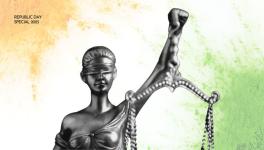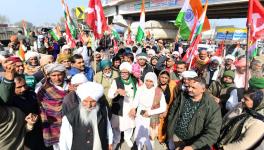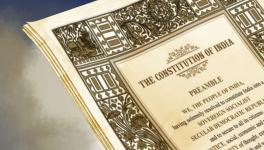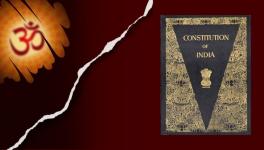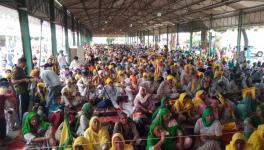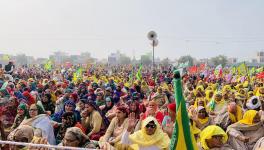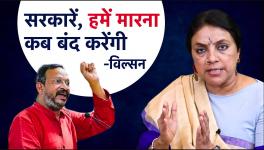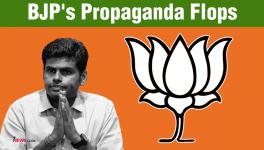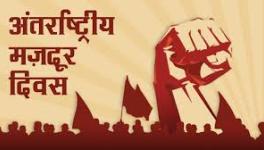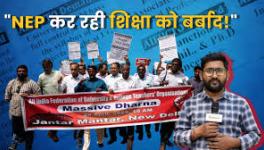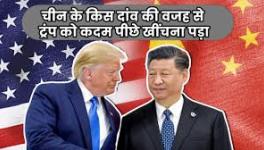Sovereign and Super Sovereign of Indian Republic
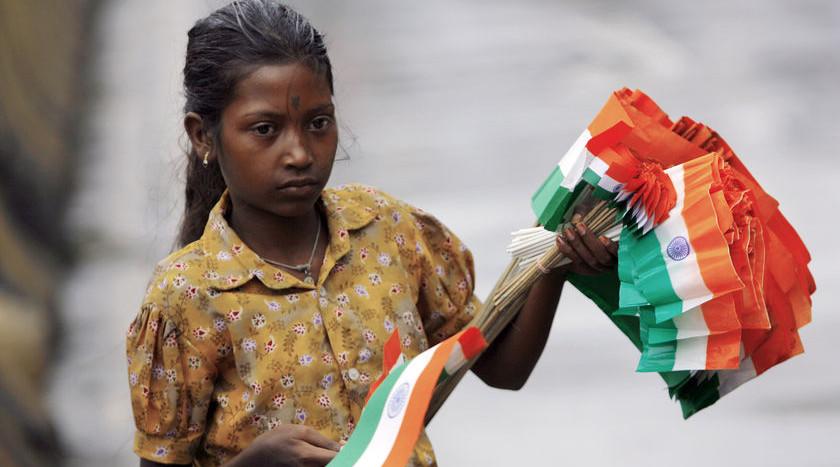
Image Courtesy: Parth Sarthi
Given the republican thrust of the Indian constitution, the above title might look quite anachronistic to some. This is because Indian constitution does not allow for such a reading as its republican character eliminates the need for hierarchical or parallel conception of sovereignty. The republican character of the Indian constitution makes people uniformly sovereign thus ruling out any competing conception of sovereignty. To put differently, the republican conception of sovereignty seeks to dissolve all the particular caste and gender based identities into more universal category of citizens. In constitutional terms people’s sovereignty then becomes a singular conception. If this is the constitutional status of the conception of sovereignty then the question that requires to be answered is: is it possible for anyone to adopt a title that suggests not only hierarchical but parallel conception of sovereignty? The assumption behind the proposed title suggests that a uniformed conception of sovereign citizens has only a formal /constitutional status and that in actual practice, in fact, there are competing and even intersecting conceptions of sovereignty. These mutually exclusory forms have evolved in the course of the last seventy years’ long life of the Indian republic as visualised in our constitution. Thus, the main focus of this essay is to highlight these different forms of sovereignty that seems to be having existed side by side but with conflicting relationship with each other. We will take on board the critique of the liberal conception of republic that houses not one but several intersection conceptions of sovereignty. Sovereign citizen is a neat and coherent category. As a part of this claim let me try and divide sovereign citizens into two basic sets: Law abiding and lawless sovereign citizens. In addition to these two, we shall also discuss the emergence of third category of citizens who have acquired the status of super-sovereign. We would like to argue that these are not ordinarily sovereign citizens but they seem to be enjoying extraordinary sovereign status. These are certain corporate houses as well as corporate NGOs. We will further argue that these corporates, along with the states in India do share the same ethical space of parental ‘benevolence’. We shall discuss this kind of super sovereign afterwards; let us discuss those who exercise their sovereignty within the constitutional framework and those who exercise their sovereignty outside the constitutional framework.
Lawless and law abiding sovereign citizens
Arguably, there are citizens who seek to exercise their sovereignty within the legal/ law framework. For example, dalits like general citizens are constitutionally entitled to enjoy political sovereignty in regard to participation in decision making processes of the country. However, dalits are sovereign in one more additional sense of being socially sovereign. The need to establish organic connection between dalits and social sovereignty becomes important in the context of the 19th century social history of Western India, particularly Peshwa rule in Pune. The Peshwa rule which functioned on the basis of Brahaminical ideology, officially denied dalits physical access to public spaces. Today, in the 21st century, dalits through capacity for defiance and resistance have been struggling to access public spaces and hold on to them by paying heavy social cost. For example, dalit protests organised through the upper caste lane in the urban-semi urban centres and even through some of the villages or celebrations of Ambedkar’s birth anniversaries are some of the cases that point at the exercise of social sovereignty. But this lawful exercise of sovereignty is trumped by the lawless forms of sovereignty that finds its expression in the dalit atrocities perpetrated by the dominant castes.
These citizens tend to operate in the zone of lawlessness to the extent that they use their own caste based law which operates parallel to the existing rule of law. The dominant castes demonstrate their sovereign power by imposing social boycott on dalits, or by parading dalit women naked and flogging them publically, like at Una in Gujarat. They are not governed by the modern law but by their own laws that are based on regressive principle of caste. Those who were involved in dalit humiliation at Una carry this dubious distinction of being in the zone of outlaw. This was evident from their being openly aggressive, contemptuous, violent and barbaric towards dalits at Una. This, in effect, invalidates the upper castes’ claim to exist under any plausible form of justice. Those who exist in the zone of outlaw, however, do not have a harder time in the republic. On the contrary, In fact, such ‘sovereign citizens’ seek to brandish their crime on social media projecting such acts as a heroic venture. In the context of upper caste atrocities against dalits , it would not be sufficient to say that the dominant castes take law in their hand and punish dalits, it would be adequate to say that these dominant castes are above the constitutional law with their own caste laws firmly held in their hand. Continuous spree of fresh rounds of atrocities against dalits, have made them to feel as victims of the republic rather than its citizens. In the Indian republic, their sense of self worth is on probation far from being completely realised.
Republic of self-respecting citizens or servile subjects?
Republican thrust of Indian constitution provided new ways of organising Indian society on egalitarian lines. The language of rights and social justice that have been provided with in Indian constitution not only made dalits the legitimate recipient of such rights, but more importantly such rights offered them an opportunity to reject what could be termed as negative rights such as right to jhootan (left over food), right to cast off clothes of the feudal lord and right to carcass and to the flesh of the dead animal. Within the framework of the republic, dalits were able to replace servility with more positive sense of self respect and self worth. In essence, for dalits, Indian republic has been the ideology of enlightenment. The republican promise to create a new society empowered dalits to give up or get rid of negative rights as mentioned above. Regrettably, these negative rights are back in different forms with a modern feudal lord such as states in India and even the corporates.
During the 1970s, Indian government was referred to as maa-baap sarkar (government as benevolent parental authority). It adopted some subsides for the poor who could barely survive. The states in India had acquired the role of “anna data” (food donor). Various chief ministers of different states have been competing to become ‘anna data’ by adopting even drastic forms of subsidies, for example, in rice and other grains, or one rupee idli and mid day meal scheme.
Today, the corporate class has chosen to share this parental benevolence with the State. This parental benevolence has been couched in moral vocabulary such as corporate social responsibility. As a part of the CSR, various philanthropic organisations are cooking food while some others are said to be collecting the ‘surplus’ food by going from restaurant to restaurant. The language of rights gets replaced by the language of seva, daan (charity) and dharma. However, food collected from the restaurant or cooked food does not seem to carry the sacred meaning of prasadam. It is claimed that several lakhs of hungry kids are fed from the inexhaustible plate. Whether one agrees or not these philanthropic efforts are the manifestation of what Utsa Patnaik calls a ‘republic of hunger’. What implication does this philanthropic have for the cognitive power of the recipients of this parental benevolence of the State and the corporates? Dalits have a definite understanding of the ethics (in fact ideology) of care. Such ethics tend to hide the fact that the philanthropists ‘sell’ the sacrifice and do not tell the truth. The truth has been expressed by the dalit parents of the children who are the recipients of mid day meals which does not come to them without paying the social cost of humiliation. The parents of the dalit children ask not just for the mid day meal, but ask the State to appoint adequate number of quality teachers in the government schools. The dalits have expressed intellectual need to get enough competent teachers in government schools besides material good like mid day meal. Their hunger for living worthily is far more morally superior to merely living. It is a different kind of hunger. The State needs to provide decent livelihood resource for the parents of the kids. Hence the dignity of kids to depend on some body’s patronage in moral sense gets violated. India has failed to create hunger for ideas as it has collaterally failed to remove the hunger as basic human existence problem that has a bearing on their existence with dignity.
Let me in conclusion make a point: at this point in time, where the poor privilege hunger for ideas over the hunger for food or hunger for quality education than the desire for food quantity that is made available through mid-day meals. Neither is it the matter of subsidised satisfaction that these sections can draw from the symbolic showcasing of the republic on a certain spectacular event. The dalits and adivasis would be equally happy to appreciate the 26th of January not simply as a one day spectacle, but can sustain their happiness only in the conditions where they would have enough resources to protect their dignity and self-worth. They cannot have a romantic attitude towards the Indian republic.
Disclaimer: The views expressed here are the author's personal views, and do not necessarily represent the views of Newsclick.
Get the latest reports & analysis with people's perspective on Protests, movements & deep analytical videos, discussions of the current affairs in your Telegram app. Subscribe to NewsClick's Telegram channel & get Real-Time updates on stories, as they get published on our website.









